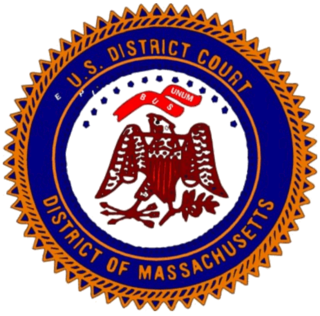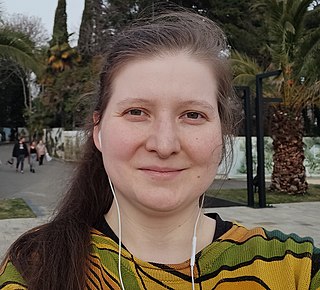
JSTOR is a digital library of academic journals, books, and primary sources founded in 1994. Originally containing digitized back issues of academic journals, it now encompasses books and other primary sources as well as current issues of journals in the humanities and social sciences. It provides full-text searches of almost 2,000 journals. Most access is by subscription but some of the site is public domain, and open access content is available free of charge.

Open access (OA) is a set of principles and a range of practices through which research outputs are distributed online, free of access charges or other barriers. With open access strictly defined, or libre open access, barriers to copying or reuse are also reduced or removed by applying an open license for copyright.

Aaron Hillel Swartz was an American computer programmer, entrepreneur, writer, political organizer, and Internet hacktivist. As a programmer, Swartz helped develop the web feed format RSS; the technical architecture for Creative Commons, an organization dedicated to creating copyright licenses; the website framework web.py; and Markdown, a lightweight markup language format. Swartz was involved in the development of the social news aggregation website Reddit until he departed from the company in 2007. He is often credited as a martyr and a prodigy, and his work focused on civic awareness and activism.

Carl Malamud is an American technologist, author, and public domain advocate, known for his foundation Public.Resource.Org. He founded the Internet Multicasting Service. During his time with this group, he was responsible for developing the first Internet radio station, for putting the U.S. Securities and Exchange Commission's EDGAR database on-line, and for creating the Internet 1996 World Exposition.

Open Library is an online project intended to create "one web page for every book ever published". Created by Aaron Swartz, Brewster Kahle, Alexis Rossi, Anand Chitipothu, and Rebecca Malamud, Open Library is a project of the Internet Archive, a nonprofit organization. It has been funded in part by grants from the California State Library and the Kahle/Austin Foundation. Open Library provides online digital copies in multiple formats, created from images of many public domain, out-of-print, and in-print books.

Quinn Norton is an American journalist and essayist. Her work covers hacker culture, Anonymous, Occupy movement, intellectual property and copyright issues, and the Internet.
Scientific Research Publishing (SCIRP) is a predatory academic publisher of open-access electronic journals, conference proceedings, and scientific anthologies that are considered to be of questionable quality. As of December 2014, it offered 244 English-language open-access journals in the areas of science, technology, business, economy, and medicine.
Academic journal publishing reform is the advocacy for changes in the way academic journals are created and distributed in the age of the Internet and the advent of electronic publishing. Since the rise of the Internet, people have organized campaigns to change the relationships among and between academic authors, their traditional distributors and their readership. Most of the discussion has centered on taking advantage of benefits offered by the Internet's capacity for widespread distribution of reading material.

In United States of America v. Aaron Swartz, Aaron Swartz, an American computer programmer, writer, political organizer and Internet activist, was prosecuted for multiple violations of the Computer Fraud and Abuse Act of 1986 (CFAA), after downloading academic journal articles through the MIT computer network from a source (JSTOR) for which he had an account as a Harvard research fellow. Facing trial and the possibility of imprisonment, Swartz committed suicide, and the case was consequently dismissed.

The Fair Access to Science and Technology Research Act (FASTR) is a bill in the United States that would mandate earlier public release of taxpayer-funded research. The bill has been introduced in 2013, 2015, and 2017. Sen. Ron Wyden (D-Ore.) and Sen. John Cornyn (R-Texas) introduced the Senate version, while the bill was introduced to the House by Reps. Zoe Lofgren (D-Calif.), Mike Doyle (D-Penn.) and Kevin Yoder (R-Kans.). The bill is a successor to the Federal Research Public Access Act (FRPAA), which had been introduced in 2006, 2010, and 2012.
An article processing charge (APC), also known as a publication fee, is a fee which is sometimes charged to authors. Most commonly, it is involved in making an academic work available as open access (OA), in either a full OA journal or in a hybrid journal. This fee may be paid by the author, the author's institution, or their research funder. Sometimes, publication fees are also involved in traditional journals or for paywalled content. Some publishers waive the fee in cases of hardship or geographic location, but this is not a widespread practice. An article processing charge does not guarantee that the author retains copyright to the work, or that it will be made available under a Creative Commons license.
An open-access monograph is a scholarly publication usually made openly available online with an open license. These books are freely accessible to the public, typically via the internet. They are part of the open access movement.

Free Law Project is a United States federal 501(c)(3) Oakland-based nonprofit that provides free access to primary legal materials, develops legal research tools, and supports academic research on legal corpora. Free Law Project has several initiatives that collect and share legal information, including the largest collection of American oral argument audio, daily collection of new legal opinions from 200 United States courts and administrative bodies, the RECAP Project, which collects documents from PACER, and user-generated Supreme Court citation visualizations. Their data helped The Wall Street Journal expose 138 cases of conflict of interest cases regarding violations by federal judges.

Library Genesis (LibGen) is a file-sharing based shadow library website for scholarly journal articles, academic and general-interest books, images, comics, audiobooks, and magazines. The site enables free access to content that is otherwise paywalled or not digitized elsewhere. LibGen describes itself as a "links aggregator", providing a searchable database of items "collected from publicly available public Internet resources" as well as files uploaded "from users".

Sci-Hub is a shadow library website that provides free access to millions of research papers, regardless of copyright, by bypassing publishers' paywalls in various ways. Unlike Library Genesis, it does not provide access to books. Sci-Hub was founded in Kazakhstan by Alexandra Elbakyan in 2011, in response to the high cost of research papers behind paywalls. The site is extensively used worldwide. In September 2019, the site's operator(s) said that it served approximately 400,000 requests per day. In addition to its intensive use, Sci-Hub stands out among other shadow libraries because of its easy use/reliability and because of the enormous size of its collection: a 2021 study estimated, that Sci-Hub provided access to 95% of all scholarly publications with issued DOI numbers, and on 15 July 2022 Sci-Hub reported that its collection comprises 88,343,822 files.

Alexandra Asanovna Elbakyan is a Kazakhstani computer programmer and creator of the website Sci-Hub, which provides free access to research papers without regard for copyright. According to a study published in 2018, Sci-Hub provides access to nearly all scholarly literature.

Paul Harvey Peters is the non-Executive Board Chair of online conference software provider ExOrdo and from 2015 to 2021 was the chief executive Officer of the Open Access publisher Hindawi. He is past Chair of the Board of Crossref and was President of the Open Access Scholarly Publishers Association (OASPA) from 2013 to 2019. Peters is known for his work as an advocate for Open Access, open infrastructure for Open Science, and research integrity in the published literature.

The idea and practise of providing free online access to journal articles began at least a decade before the term "open access" was formally coined. Computer scientists had been self-archiving in anonymous ftp archives since the 1970s and physicists had been self-archiving in arXiv since the 1990s. The Subversive Proposal to generalize the practice was posted in 1994.

Diamond open access refers to academic texts published/distributed/preserved with no fees to either reader or author. Alternative labels include platinum open access, non-commercial open access, cooperative open access or, more recently, open access commons. While these terms were first coined in the 2000s and the 2010s, they have been retroactively applied to a variety of structures and forms of publishing, from subsidized university publishers to volunteer-run cooperatives that existed in prior decades.
Shadow libraries are online databases of readily available content that is normally obscured or otherwise not readily accessible. Such content may be inaccessible for a number of reasons, including the use of paywalls, copyright controls, or other barriers to accessibility placed upon the content by its original owners. Shadow libraries usually consist of textual information as in electronic books, but may also include other digital media, including software, music, or films.
















